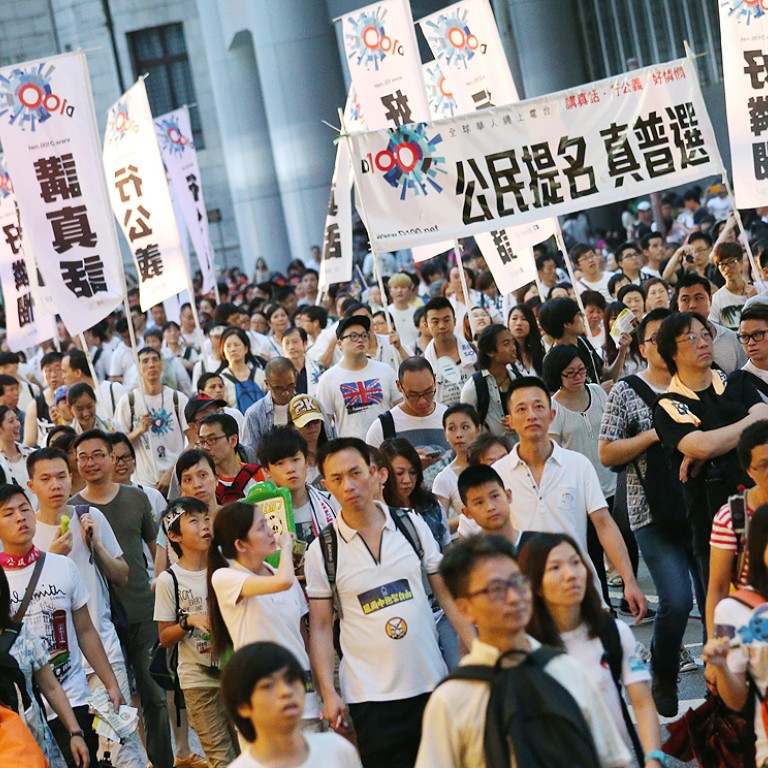
Now that the people have spoken, officials must handle their demands seriously
Hong Kong has not experienced as hot a summer for years. Not only is the mercury creeping up, public dissatisfaction, as reflected in the Tuesday's mass protest, is also at boiling point.
Hong Kong has not experienced as hot a summer for years. Not only is the mercury creeping up, public dissatisfaction, as reflected in the Tuesday's mass protest, is also at boiling point. Despite sweltering heat and sporadic downpours, hundreds of thousands took to the streets to press their demands for genuine universal suffrage. The high turnout is as much a manifestation of growing discontent as a warning to Beijing and the government. The grievances and aspirations should be handled seriously.
As usual, the public have been bombarded with various figures. Organisers claimed 510,000 had participated, the police put the figure at 98,600 at the peak. Academics in charge of independent counting put it at between 122,000 and 172,000. Whatever benchmark is used, the crowd is the largest in a decade. The television images, reminiscent of the 2003 landmark protest, speak for themselves. Against the backdrop of the unofficial referendum on universal suffrage and the controversy over Beijing's white paper on the city's autonomy, the turnout should not have come as a surprise. What's worth noting, though, is that apart from the usual damning slogans against Chief Executive Leung Chun-ying, a considerable number of people took part in the July 1 march for the first time. They are worried that the city's future will be jeopardised if the socio-political environment continues to worsen.
Despite simmering anger and grievances, the procession was, by and large, peaceful and orderly. Regrettably, it was marred by some student groups, which defied police warnings and staged what is seen as a trial run of the Occupy Central campaign. Police had to forcibly remove those in the overnight sit-in during a pre-dawn operation. While some may find the students' ideals and passion commendable, the assembly was staged without following the existing legal procedures and was, therefore, unlawful. Thankfully, it did not cause major disruption. But the impact of a 10,000-strong civil disobedience campaign will inevitably be more significant.
Now that the people have spoken, it's time to get on with the details. Beijing has said that the determination to implement universal suffrage remains unchanged. The public awaits a concrete government proposal that helps foster substantive discussion on the way forward, in particular how to draw up the nominating committee for the chief executive poll.

